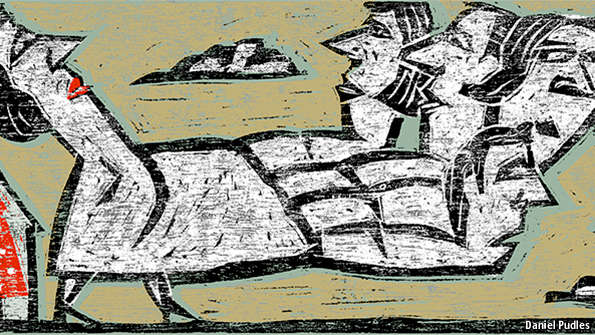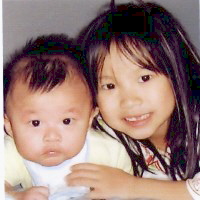
The Green Road. By Anne Enright. Norton; 320 pages; $26.95. Jonathan Cape; £16.99.
FIRST she wrote magical realism like Angela Carter’s, then she veered into non-fiction. But it was only when she focused on her native Ireland, investigating “the wound of family”, first with “The Gathering”, which won the Man Booker prize in 2007, then with “The Forgotten Waltz” in 2011, that Anne Enright really found her voice. She returns to it in her new novel, “The Green Road”.
Intending to sell the family home, a widowed mother, Rosaleen Madigan, summons her children to County Clare for one final Christmas. The early part of the book ranges in time and place, from a New York beset by AIDS to rural Mali in west Africa and the flush of the Irish economic boom, allotting chapters to each family member. In the second half the Madigans gather: martyred, empathetic Constance; Dan, a gay failed priest; younger brother Emmet, hollowed out by aid work in Africa; and Hanna, an alcoholic first-time mother. Imperfect and ordinary, the siblings are overseen by their querulous mother, who feels that “every child she reared was ready with one grievance or another”. Relations soon sour on Christmas Day, with consequences for all the family.
“The Green Road” analyses how randomly love can be allotted in families. As with the Irish boom, the security of family can be a mirage. Hanna reflects: “This is how they knew each other, the Madigans, they knew the timbre of a voice, the rhythm of fingers tapping on a tabletop, and they didn’t know each other at all.” Ms Enright has previously said that she wants to “meet people in their own heads” and her skill is there for all to see in the construction of the five voices. The many viewpoints also demonstrate the unreliability of each character; rarely do they align with the perception that others may hold of them. Yet by the end, the reader senses that the reunion has offered this family a psychological—if temporary—rebooting.
Vulnerable and lost, Rosaleen wonders in a rare moment of clarity about her children: “Why she could not be nice to them, she did not know. She loved them so much.” A book of brawny prose sheathed in cool intelligence.
